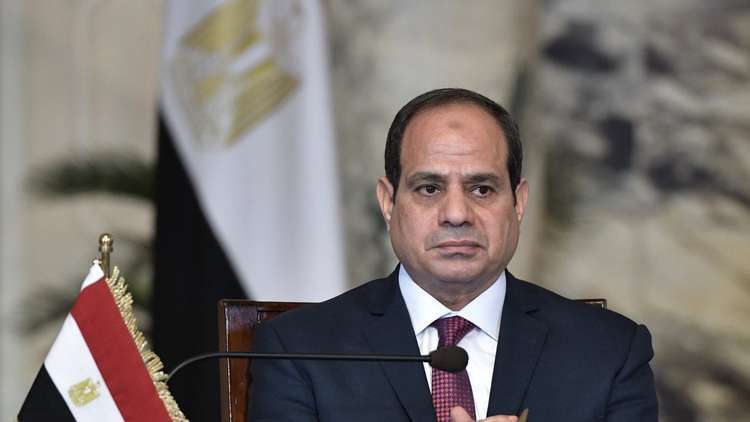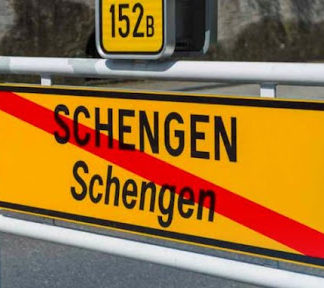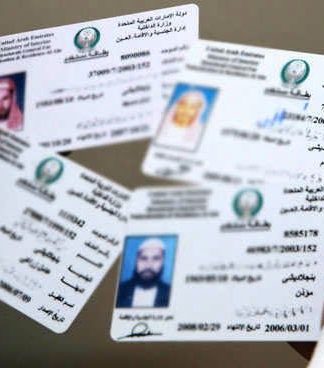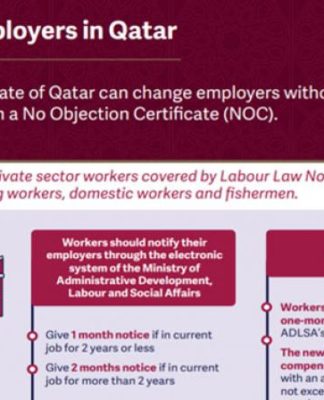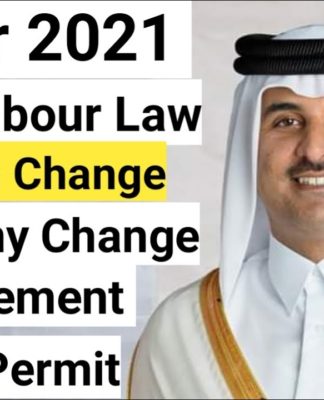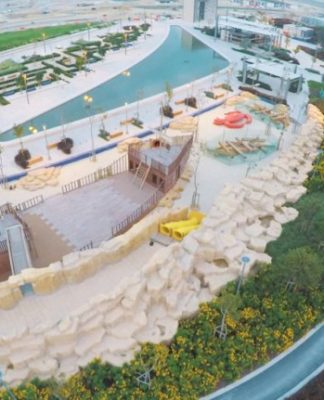
Abdel Fattah Sisi
Many believe that Egypt today is living in a new era called the “era of legal collection.” Whoever wants to live safely in this age and stay inside his home must pay in any way, otherwise his fate is expulsion and watching his shelter be demolished before his eyes.
This legal collection has extended to all governorates of Egypt, and the price list for “reconciliation” has become in full view of everyone, but the question that is still being asked is looking for an answer: Does Sisi really aim behind his campaign to reform the country? Or collecting taxes and making money to fill the empty treasury deficit?
Angered the President
On August 29, 2020, while Egyptian President Abdel Fattah El-Sisi inaugurated a group of projects in Alexandria Governorate in the north, he said angrily about building violations: “If we are convinced of the utmost seriousness, this issue will not be allowed with all governorates and infringements, and I will answer engineering equipment and I will answer and remove all This talk is in all villages and was annihilated with all engineering equipment, I speak with the utmost seriousness and firmness about all the violations. “
“We can never allow it,” he added, angry, “if people do not like it, we will leave this place and walk.”
The reason for Al-Sisi’s anger, his revolt, and his threat to violators, goes back specifically to January 2020, when the door to submit requests for reconciliation in some building violations was closed after it was opened for a full 6 months since its executive regulations were issued in July 2019.
At the time, Sisi expected, with his mentality aimed at collecting money from citizens, that the state treasury would receive billions of pounds, but his endeavor was disappointed when the departmental offices remained free of requests.
Less than 100 thousand reconciliation requests submitted by Egyptians until December 2019, equivalent to only 3% of the total targeted violations, and the state treasury remained free of the spoil of fines.
Only about 30 million pounds (the dollar equals approximately 16 pounds) was collected, while Sisi and his regime were targeting nearly 300 billion pounds, flooding the state treasury, according to the sessions of the House of Representatives (Parliament), in exchange for reconciliation fines.
With the failure of the collection, Sisi launched a frenzied campaign in all Egyptian governorates that affected thousands of homes, many of which were flattened to the ground, after Sisi threatened to say: “The state with its institutions, O Muhammad, Zaki (Minister of Defense) is responsible for preserving the Egyptian state. I will never allow us to We gave up our country and lost it like that, and a unit imagined, no, by God, if the matter required the Egyptian army to go to all the villages of Egypt. “
The Egyptian citizen has become between the anvil of payment or the hammer of the security services that evicted thousands of families from their homes, which caused a state of widespread anger, which translated into demonstrations, while some subjected to their coercion to the prices of reconciliation imposed by the regime.
Reconciliation prices
After the home demolition sections angered the Egyptians, some of whom began to confront the forces that worked to implement the demolitions, the Prime Minister announced that all local administrations and executive bodies had been stressed on the necessity not to interfere and deal with the property (demolition) for which the reconciliation model was issued, As well as stopping and freezing its provisions, pending a decision on reconciliation and procedures for the codification process.
Reconciliation prices varied according to what was decided by the committees formed by the governorates to review the prices of reconciliation of building violations according to the nature of each region and governorate, according to the decision of Prime Minister Mustafa Madbouly, which obligated the governors to take the value of reconciliation from the citizens, without taking into account social conditions, explaining that the state will face decisively i.e. Wrong building.
On August 30, Major General Khaled Abdel Aal, Governor of Cairo, issued Decision No. 3967 of 2020 regarding determining the value of reconciliation fees for building violations in all neighborhoods of the governorate.
The prices included 38 neighborhoods in Cairo divided into 4 regions (north – south – east – west) as follows:
As for Giza Governorate, the price values of a flat meter were set in some building violations and legalized their conditions in accordance with Law No. 17 of 2019 and its implementing regulations, as the price per meter started Residential and administrative costs are 50 pounds, and the lowest commercial price is 100 pounds.

Lower Egypt
In Alexandria, Major General Muhammad al-Sharif, Governor of Alexandria, issued Decision No. 599 of 2020 determining the value of the meter price in building violations, according to each region, and the prices for reconciliation in building violations, according to the decision, are as follows:
Abu Qir areas on the sea, the beach, or the Corniche 1000 pounds per meter, the Abu Qir resort area 600 pounds per meter, Tosson area 500 pounds per meter, the Maamoura area, the sea country 500 pounds per meter, the area (Bahri Al-Railya), the sea border, the eastern border, and neighborhood borders Al-Montazah, the tribal border, the Abu Qir railway line, and the western border of the Al-Montazah neighborhood first, the price reaches 700 pounds per meter, and these were the most expensive areas in Alexandria.
In Menoufia Governorate, the value per square meter in cities started from 600 pounds per meter on the main roads, and in villages and estates from 125 to 50 pounds.
The governor of Menoufia, Major General Ibrahim Ahmed Abu Limon, announced that the total number of reconciliation requests submitted within the governorate is approximately 489 million pounds, since the start of the security campaign and until now, with a total number of 128,945 requests in the governorate.
In Sharkia governorate, the value of a meter inside the estates and villages of the mother villages started from 50 pounds per meter and the mother village 75 pounds, and the price per meter inside the city of Zagazig reached 1000 pounds in the major squares and places overlooking streets of more than 18 meters.
The Governor of Ismailia, Major General Sherif Fahmy, also revealed that the rationing prices in Ismailia Governorate had issued Decree No. 722 of 2019 and was published in the Official Gazette.
He explained that the prices of rationing prices included villages, hamlets, centers and cities, and they were divided into different categories and levels according to the nature and location of the land, as well as the width of the streets on which the land is located.
The prices of rationing varied in Ismailia Governorate, as the rationing prices in the hamlets and haciendas started from 50 to 80 pounds, and in the villages it started from 90 to 150 pounds, and in the cities it started from 135 to 1700 pounds, depending on the nature and activity of the land.


Violating real estate,
according to a study by the Egyptian Ministry of Housing published on September 1, 2020, the number of violating real estate in Egypt since the 1990s and until now has reached 7 million 380 thousand properties, spread within 184 centers, 92 neighborhoods, 1,211 rural local units and 214 cities, affiliated with the local administration and directorates Housing spread in the 27 governorates.
Prime Minister Mostafa Madbouly stated in April 2020 that the removal should not be limited to demolishing one or two columns in the building, but rather to level it with the ground.
The number of building violations that were removed related to state property reached 3,356 cases, with a total area of 40,547.54 square meters, while the number of removals of building violations of private property reached 3,942 cases, with an area of 472,727 square meters.
The previous figures mean the displacement of thousands of families outside their homes, especially since the state does not compensate or provide shelter for those who were evicted from their homes, which is what happened in the last campaign that was launched in September 2020, and video clips of families and children were circulated in the streets and squares, after the executive machine hit their homes. On the eye of the security services.
Those steps that recalled the era of levies in Egypt and the collection of exorbitant taxes, motivated citizens to demonstrate in the midst of mounting anger over the demolition of a large number of homes and mosques.
On December 9, 2019, Finance Minister Dr. Mohamed Maait told Al-Mal newspaper that “taxes represent 85% of the Egyptian state’s resources. .
the recorded tax proceeds on the added value of 310 billion pounds , an increase of 7 per cent over the same period of fiscal year 2017/2018, the value increase 50.9 billion pounds, and at the Ministry of Finance.
And it is pushing for a real hungry revolution. Reaching people in their homes and threatening displacement is the most that a government can do with its citizens. “


















